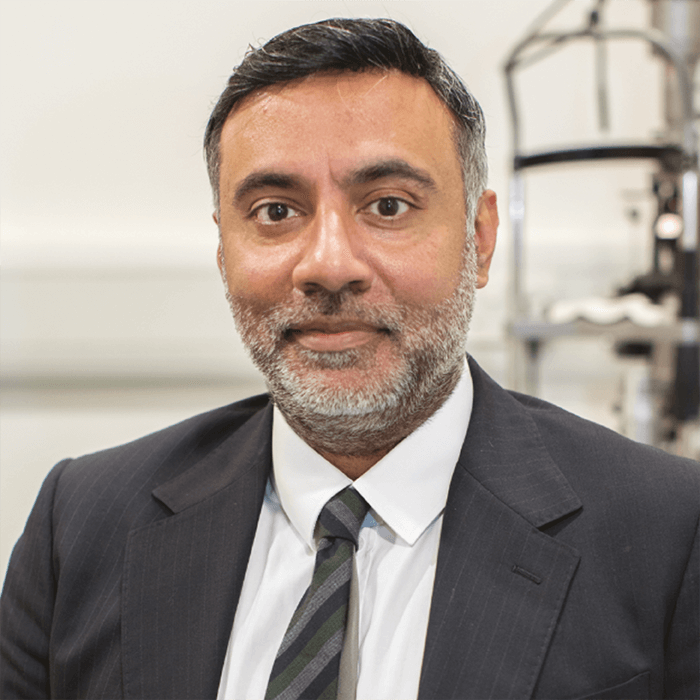
Surprised by the lack of public awareness around cataract surgery and other vision-impacting diseases, specialist eye consultant and founder of the London Ophthalmology Centre, Vik Sharma, commissioned a national eye health survey to determine exactly how much the average person on the street knows about eye health. The survey also aimed to highlight the importance of regular check-ups, the available treatments out there for both cataracts and glaucoma, as well as increasing awareness of how to spot early cataract symptoms.
The results of the survey were alarming. The majority of the UK public (72 percent) were only aware of clouded vision as a potential cataract symptom, less than half (40 percent) were unaware of the different lens options available post-operation, and a staggering 87 percent of respondents didn’t know they could have cataract surgery immediately, without having to suffer from further declining vision. We spoke with Vik Sharma to learn more.
Presumably, this survey has confirmed your fears…
Absolutely. Ever since I started as a consultant in 2006, I have been surprised – and sometimes frustrated – by the lack of public awareness around eye health. For example, many people do not even know what a cataract is. And yet cataract surgery is the most commonly performed operation. It is an important procedure that most of us will need during our lifetime, but many people have the misconception that it is a film over the eye that needs to be peeled off!
Over the years, we’ve done what we can to educate patients and the public, but even now many patients don’t realize that they can choose to have cataract surgery at any time. Even today, many patients inform me that their optician told them their cataract wasn’t yet ready for removal. This is an old mindset. Cataract procedures changed significantly once phacoemulsification entered the fray.
Patients can also be surprised that they will be having a lens placed in their eye. Privately, there are options with the choice of lens implant and it’s important that patients are aware of these. After all, patients cannot make informed decisions unless they know what the options are.
What were the most surprising aspects of the survey findings?
I wasn’t surprised by any of the survey results! From my own conversations with patients and the general public, I was already aware that there was a lack of knowledge about eye health. Of course, there are always some patients who have done research and have prepared educated questions, but the vast majority have not.
What other misconceptions exist about cataract surgery and cataracts?
Many patients think they need an injection or must be put to sleep for the surgery. Patients are usually surprised to find it’s just drops to numb the surface of the eye, before the surgeon starts work. Many are also pleasantly surprised that it’s just a 10-minute procedure and that they don’t have to lie still afterwards! Previously, with the old styles of surgery, the patient had to stay in bed and wasn’t allowed to bend over in case the lens implant moved. This is not the case today. Many misconceptions about cataract surgery relate to older technologies and methods.
So patients generally assume the procedure is more complex than in really is?
Well, it cuts both ways. Some people think it’s just a quick two-minute procedure that involves peeling the skin off the eye and then they're out of there. Others think it’s a big operation and expect to be hospitalized for a day or two and be unable to use their eye for a week. Both of these perceptions are wrong, of course!
When you actually delve into what cataract surgery is, it is a very technical procedure – and it’s amazing. Even after performing thousands and thousands of procedures, I’m still amazed at what we can do – and how the technology allows us to precisely handle such delicate tissue.
In terms of raising public and patient awareness, what are the next steps for the London Ophthalmology Centre?
We conducted this survey as a way to reach out to the media so that we can increase public awareness. We’re also holding open evenings – educating not only the public but also GPs – so that we can interact and answer people’s questions. There are also a few elderly groups that have asked me to visit and talk about cataracts.
I really enjoy doing this kind of outreach – and I think it’s really important to get this information out there. Communication is the cornerstone of medicine. You’ve got to be able to interact with your patients and speak to them. I’ve always enjoyed doing that, and I want to ensure they understand their surgery and the choices involved, particularly as cataract procedures are so common.
